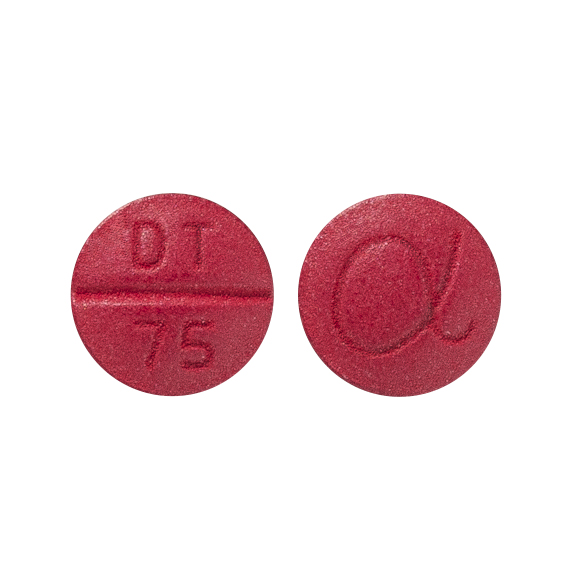Several specific reasons contribute to the discontinuation of dosulepin in recent times.
First and foremost, safety concerns have emerged, including side effects and adverse reactions in some patients. Also, newer and more advanced antidepressant medications with better safety profiles and improved efficacy have been introduced.
Dosulepin, a tricyclic antidepressant once commonly prescribed for depression and mood disorders, is facing a decline in its availability in the pharmaceutical market.
Here, you will learn the causes of Dosulepin’s withdrawal and comprehend the adverse effects with an effective treatment.
What is dosulepin?

Dosulepin, also known by its trade name Prothiaden among others, is a tricyclic antidepressant (TCA) medication that has been used to treat depression and certain anxiety disorders.
Also, Tricyclic antidepressants were among the first generation of antidepressant medications developed and were commonly prescribed in the past. But it is no longer widely used due to its relatively high toxicity in overdose without therapeutic advantages over other TCAs.
In addition, it works by affecting the levels of certain neurotransmitters in the brain, such as serotonin, norepinephrine reuptake inhibitor (SNRI), and also has other activities including antihistamine, antiadrenergic, antiserotonergic, anticholinergic, and sodium channel-blocking effects.
Moreover, These neurotransmitters play a role in regulating mood, emotions, and overall mental well-being. As well as influencing the levels of these neurotransmitters, it aims to alleviate symptoms of depression and anxiety.
Lastly, Consisting of many drugs has both possible benefits and hazards. While it can help with depressive symptoms, it can also cause negative effects and interact with other medications. Drowsiness, dry mouth, constipation, impaired vision, and dizziness are also common reasons.
What is The Reason for dosulepin being discontinued?
Safety and Side Effects:
New safety concerns or severe side effects that arise with the use of dosulepin may prompt regulatory agencies to reconsider its use or restrict its availability. In such cases, the evaluation of risks and benefits becomes paramount in making informed decisions about its continued usage.
Low Demand: If there is a decline in the demand for dosulepin pharmaceutical companies may choose to discontinue its production.
Patent Expiration: If the patent has expired, generic versions may become available, thereby potentially leading to the original manufacturer deciding to discontinue its branded version due to competition.
Regulatory Decisions: authorities may regularly look over the safety and effectiveness information on medicines and decide whether to keep them on the market
Availability of Alternatives: Healthcare practitioners may choose other methods as newer, more vital medication for the treatment of depression and other mood disorders becomes available.
KEY factor
Dosulepin is no longer prescribed to new patients due to the risk of side effects. As a result, it’s necessary to remember that the full effects of depression take 4 to 6 weeks to manifest, and common side effects include constipation, dizziness, dry mouth, weariness, difficulty urinating, headaches, and nausea. Beyond that, it is recommended to avoid driving, riding, or operating machinery while weary. In case of sudden discontinuation, it is recommended to consult a doctor.
Who can take dosulepin?
Dosulepin is often prescribed to people over the age of 18; however, if all other treatments have failed, it might be the best choice. If not, a specialist might suggest it. Additionally, doctors may suggest monitoring blood sugar levels during the first few weeks in order to acclimatize to diabetic medication due to the challenge of keeping stable blood sugar levels while taking this medication.
Who may not be able to take dosulepin?
People who are facing allergic reactions, cardiac issues, liver or kidney issues, porphyria, epilepsy, glaucoma, thoughts of self-harm, attempts at getting pregnant or breastfeeding or being put to sleep before surgery. Additionally, seizures and vision issues may become more likely as a result.
What are the effects and Solutions of Dosulepin
Constipation
- Eat more high-fiber foods, Like fresh fruit vegetables, and cereals. Try to have several glasses of water, Do some exercise
Feeling dizzy
- Do not get up too rapidly from a seated or sleeping position.
Dry mouth
- Chew sugar-free gum.
Feeling sleepy or tired
- Take Dosulepin in the evening and make an effort to consume less alcohol. If you feel tired, avoid operating machinery or driving. Consult your doctor if this is of no use.
Difficulty peeing
- When you try to urinate, relax. Try not to force the urine to come out. Try again later if you are unable to go. If you are completely unable to urinate, call your doctor right away.
Headaches
- Rest and drink lots of water, please. Try to limit your alcohol consumption. If the headaches are severe or persist for longer than a week, consult your doctor.
Blurred vision
- If this happens to you, avoid operating devices, driving, or cycling. If this does not get better after a week, go to your doctor as they may need to prescribe an alternative medication. This may become better as your body adjusts to the medication.
Serious side effects of this medicine
Your skin turns yellow, nevertheless, this may be less visible on dark or black skin, your heart is beating quicker or irregularly, the whites of your eyes turn yellow, or – this can indicate hepatic issues.
If you frequently experience muscle cramps, long-lasting disorientation or weakness, or persistent headaches, your blood sodium levels may be low.You experience eye pain, a change in your vision, or eye swelling or redness. Either you’re unable to urinate or you have severe constipation.
Dosulepin and Pregnancy:
- Despite its limited use during pregnancy, dosulepin’s effects remain relatively unexplored.
- Safeguarding maternal and fetal well-being is paramount during pregnancy.
- The heightened risk of depression and anxiety underscores the significance of maintaining mental health throughout maternity.
Dosulepin and Breastfeeding:
- If a healthcare provider deems the baby healthy, dosulepin can be incorporated into a breastfeeding routine.
- Minimal transfer of dosulepin into breast milk, along with its inconspicuous effects on infants, offers reassurance.
- While alternative medications might be preferred for breastfeeding, prioritizing one’s own well-being is imperative.
- Engaging in a comprehensive dialogue with a doctor or pharmacist aids in making an informed decision on dosulepin use during breastfeeding.
Continuing Treatment and Observing Infant’s Well-being:

- Sustained dosulepin usage correlates with sustained personal well-being.
- Augmented advantages of breastfeeding extend to both mother and child.
- Should any concerns about infant behavior or health arise during breastfeeding, promptly seeking guidance from a health professional is advised.
Dosulepin and Fertility:
- Ongoing research has yet to associate dosulepin with compromised fertility in men or women.
- Couples aspiring to conceive are encouraged to solicit guidance from a doctor before integrating dosulepin into their regimen.
FAQ
How will it make me feel?
It helps to lift your mood. You may notice that you sleep better and are feeling less anxious.
Will I gain or lose weight?
Dosulepin can change how hungry you feel. Some people feel more hungry when they’re taking it, and others feel less hungry. So your weight may change when you first start taking it.
Is it addictive?
No, but you may get withdrawal symptoms when you stop taking it, especially if you stop taking it suddenly.
Conclusion
The harmful effects and side effects in some people, as well as alternative options, minimize the necessity for dosulepin. Other than that, patients should collaborate closely with their healthcare providers to determine the most appropriate and effective treatment plan for their specific circumstances.

